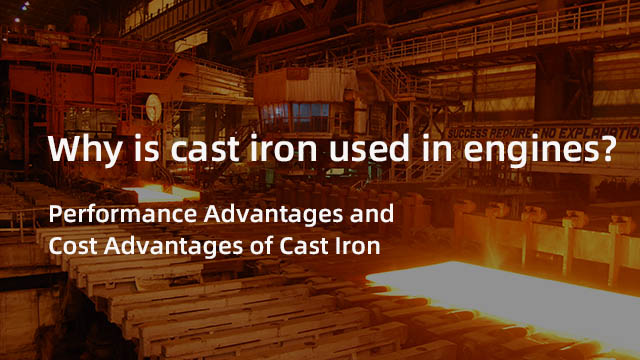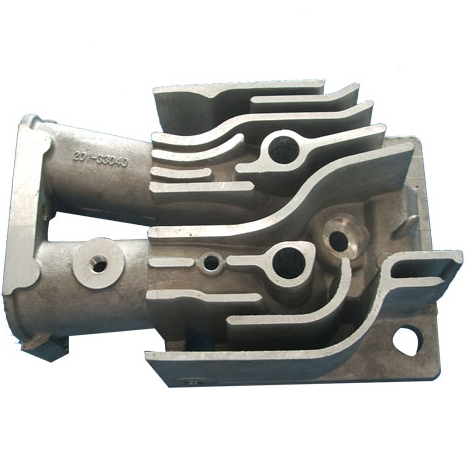
Cast iron is frequently chosen as the material for engine castings mainly due to a series of characteristics of cast iron that meet the working requirements of engines:
Excellent Adaptability to the Casting Process
Cast iron has excellent fluidity, which allows it to fill the mold cavity very smoothly during the casting process, thereby accurately shaping the complex shapes of engine castings, such as key components like cylinder blocks and cylinder heads. It should be noted that these components often have numerous fine structures and channels, which require the material to have excellent formability, and cast iron precisely meets this stringent requirement.
High Strength and Outstanding Wear Resistance
During the operation of the engine, each component needs to withstand extremely high pressure and strong friction. Cast iron not only has high strength and hardness, which is sufficient to resist the mechanical stress generated during engine operation, but also its wear resistance is extremely prominent. It can ensure that the engine components always maintain a good working state during long-term use, significantly extending the overall service life of the engine.
Superior Vibration Damping and Noise Reduction Characteristics
When the engine is running, vibrations and noise will inevitably be generated. The excellent vibration damping performance of cast iron can efficiently absorb and attenuate vibrations, significantly reducing the transmission range of engine vibrations and noise, and greatly improving the operational stability of the engine and the driving comfort.
Good Heat Resistance and Corrosion Resistance
A large amount of heat will be generated during engine operation, and it will also come into contact with various corrosive substances such as fuel, lubricating oil, and combustion exhaust gases. Cast iron performs well in terms of heat resistance and corrosion resistance. It can stably maintain its performance in a high-temperature and corrosive environment and is not prone to deformation or damage due to corrosion.
Significant Cost Advantage
Compared with some other metal materials, the cost of cast iron is relatively low. In the large-scale production of engine castings, this characteristic gives it extremely high economic efficiency. For industries such as the automotive industry that involve large-scale manufacturing, reducing material costs is of great importance. Using cast iron can effectively control production costs and strongly enhance the product's competitive edge in the market.、
TIEGU, as a professional foundry, specializes in providing engine castings made of high - quality grey iron and ductile iron. Our advanced casting techniques and strict quality control processes ensure that each engine casting we produce meets the highest standards of the industry, contributing to the high - performance operation of engines.
If you need to purchase or customize castings, please contact us and we will provide you with a product quotation as soon as possible.


 en
en  fra
fra  de
de  ru
ru  gle
gle  th
th  ara
ara  it
it  jp
jp  kor
kor  zh
zh 



